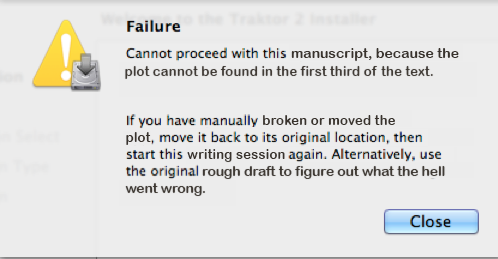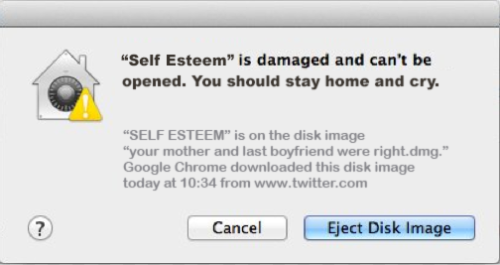#tips and such
Anonymous asked: A friend and I have decided to start working on a screenplay together. I’ve never written something with someone before and was wondering if you had any advice for writing with another person?
Writing with another person can be an amazing, rewarding experience, but it can also be tricky and sometimes frustrating. First some tips from my own experience, and then some links to tips from other writers.
My Tips:
1.Figure Out a Game Plan - sit down together before you start writing to figure out how you want to proceed. Figure out when, where, and how you’re going to write, and decide on a budget for supplies. Be sure to hammer out your plans for the future, so that you know what’s next after you finish your screenplay.
2.Set-Up a Schedule and Projected Timeline - it helps a lot if you can schedule a time when you’re going to work on your project together. It doesn’t have to be the same time every day/week, but you should decide at least a week in advance what days and times you’re going to meet. Also, talk about cancellations so you’re not creating tension if something unexpected comes up and someone has to skip a meeting. The projected timeline will help keep you on target so that you are working toward a finishing date.
3.Flesh Out the Details in Advance - before you start writing, have a major brainstorming session and figure out the details of your plot, characters, world, etc. in advance. It’s important to get yourselves on the same page with everything so that you’re not stepping on each other’s toes later on.
4.Be Patient and Choose Your Battles - No matter how much you work out in advance, there are going to be points when you do step on each other’s toes. Try to be patient and understanding when that happens. If the other person insists on something out-of-line with what you’d planned or personally imagined, don’t make a fuss about it unless it is really and truly something that you can’t live with changing. Being open-minded and flexible will help keep things running smoothly.
Others’ Tips:
Tips for Collaborating with Other Authors
Lily Herne’s Top Tips for For Writing Collaboratively
How to Collaborate — and How Not To
- Wind down. The stress of the day stays in your system until you give yourself time to detox. Do something relaxing, even if that means scrolling a few pages on your dash – but be careful, because Tumblr and other social media sites are time thieves. Two hours later, you’ll realize you’re on page twenty of your dash and still on page 1 of your story.
- Wind up. Spend some time getting yourself into the mood. Look at awesome art, play the right music for the right scene, doodle, even if your doodles suck. Sometimes windup time is also taking a shower or folding the laundry – mindless chores where you can let yourself immerse your brain in your story and get excited again.
- First drafts suck. “I wrote too much of [thing]” or “My opening is just not working” or “I hate every word of it” are all legitimate thoughts, but leave all that in the past. It’s done. When you finish, you can go back and revise all you want (and you might even find that the beginning isn’t as bad as you initially thought). What matters is not the quality, but finishing. Give yourself permission to suck.
- Gain momentum. For me, the first few minutes of writing are absolutely agonizing. Focusing is pretty much a physical strain, but once I’ve forced myself to focus for a good ten minutes, the next time I look up from writing, it’s dark outside. Let yourself get started before you get frustrated or distracted.
- The beginning slump. Openings are always the worst part for me, and by “opening”, I mean the first few chapters. All I want is to be completely submerged in the story, and the opening is far from that. But once I labor through these first few chapters, I find myself writing a lot more proficiently with fewer agonized groans.
- The post-beginning slump. For others, the slump happens after the opening chapters are finished. The shiny newness of the story is gone, and now we face being married to these characters and this story until the end. Find ways to keep yourself interested in your story, if that means simply writing through the agony or transforming your outline to make it fun again. Sometimes the scenes we don’t want to write are scenes that drag the story anyway.
- When you’re stuck, outline. When we hit the “Now what?” problem, sometimes that stops us from moving forward. I get to a point of “I didn’t plan this out as thoroughly as I should have,” and then it’s easy for me to get distracted by other things instead of figuring out the perplexing problem. Oftentimes, I’ll take a moment to outline each step I need in order to clear the problem, using it as a guide to conquer the scene.
- Don’t edit. It’s easy to get caught up in wondering what we’ve written, wanting to take a step back and look at it, but then we chance getting caught up in fixing things that don’t need fixing until the revision process. It’s like productive procrastinating, but it’s definitely not building your word count the way actually writing can. That being said –
- Reread. I used to reread in order to get my brain back into the story, and I allowed myself only micro-edits here and there. Rereading can work for some writers, revving the fingers for plenty of words, but it can also work against other writers who might have trouble with confidence in what they write. Figure out what helps you versus what hurts you.
- Read. If rereading doesn’t work, try simple reading, but read something that’ll get going that drive to write, something that inspires that absolute need to type a million words into your story.
- Write with someone. Word sprints and word marathons are good ways to keep up morale. If nothing else, having a writing buddy to whine with about writing woes is always good for morale. But –
- Don’t compare your word count to others. I can write for long periods of time, but just about all of my writing friends can write nearly twice as fast as I can. I’m a slow writer (and a slow reader, actually), but my writing stamina has built up over the course of a decade. You’re not in the same place in your life that others are, so set the goals that are right for you, not for them.
- Give yourself permission to fail. If you only write a couple hundred words in a day, that’s okay. That’s a couple hundred words you didn’t have before, and if you write a couple hundred words every day, you’ll have a few pages by the end of the week. If you don’t write any words in a day, that’s okay. Tomorrows are not the same as yesterdays. You don’t know what you’ll do until you’ve done it.
1. Apps that help you focus
Cold Turkey (for Windows) and Concentrate (for MAC) allow you to block websites that distract you from your tasks, which in our case is writing our novel. You choose how long certain websites are going to be blocked. Cold Turkey is actually so genius that you can’t reset your settings, which means you can’t cheat.
2. For Poets
Poetreat helps you to find the right words depending on the rhyming theme you choose. Welcome to the future!
3.Evernote
I’ve already talked about this app but it’s really perfect, which is why I’m repeating myself. It’s like a virtual notebook that helps you to organize your whole life and your stories.
4. Get Encouraged
Ever heard of Help Me Write? It’s very simple: you add your writing ideas and your audience will help you decide if you should pursue that idea by saying if they’d like to read that.
5. For Radicals
Write or Die is an evil little app that will punish you if you don’t achieve your goal. You set how many words you want to write and choose what kind of ‘punishment’ you want, should you not succeed.
6. Get Help - literally
Poetica is a community of writers who are willing to put their work up for editing by anyone who is a member. Unfortunately it’s not open to everyone yet, but you can subscribe to their mailing list and wait. I think it’s worth it!
7. Organize Your Brainstorming
Scapple ,Scrivener andIndex Card are apps that help you structuring your work in order for you to get to the end of your first draft.
8. Name Generator
If you’re like me, you’re obsessed with names. I choose names carefully because I believe that names influence the story a lot (this might be silly, but I can’t help myself). I used to stare into nothing for ten minutes trying to come up with good names for side characters and then started a 30 minute Google search and then all of a sudden I was on tumblr and…yes, exactly. I lost track of what I was actually doing: writing. So this name generator that I found really helped me.
***
What are your favorite apps and websites? Please share them with us!
I know that there’s an exception to every rule, and I’m sure if we try hard enough we can find exceptions to most of the things on this list as well, BUT there are some things you should ALWAYS avoid doing as a writer. Of course, depending on the situation there’s a reason for doing certain things, but we need to be very careful. Here’s a list of things you should never do as a writer:
Create a character based on stereotypes. Please, don’t do this. I’m begging you. Don’t take everything you’ve heard about a certain race, ethnicity, gender, sexual orientation, etc., and write your story based on hearsay. You will almost always be wrong. You will almost always insult someone. There are many resources available to you and an entire writing community you can discuss these things with. Sure, sometimes your character will act in a stereotypical way that lines up with something they identify with (An Italian character LOVES pasta!), but you need to be very careful. Don’t use hurtful stereotypes.
Not research a disability, illness, disorder, etc. Don’t assume you know everything about a topic. Even if you have said disability, illness, disorder, etc., it’s hard to know everything about it AND people experience things in different ways. Research is so so so important. If you want to write about something, make sure you do your research. Put in the work necessary or don’t do it at all.
Bully other writers. Constructive criticism can help. Bullying other writers does not help. Telling someone their writing sucks does not help. If you want to be part of the writing community, learn how to communicate with other writers in a friendly and constructive way. If you’re trolling the internet only to put other writers down so you can feel good about your own writing, please stop.
Talk down to your readers. I think one of the most important writing rules you need to remember is to not talk down to your readers. Your readers are smart and they know when you’re talking to them like they don’t understand anything. Don’t spell everything out for your readers and don’t assume they’ll never understand what you’re talking about. That’s a surefire way to get people to stop reading.
If you have anything to add to this list, please do!
-Kris Noel



